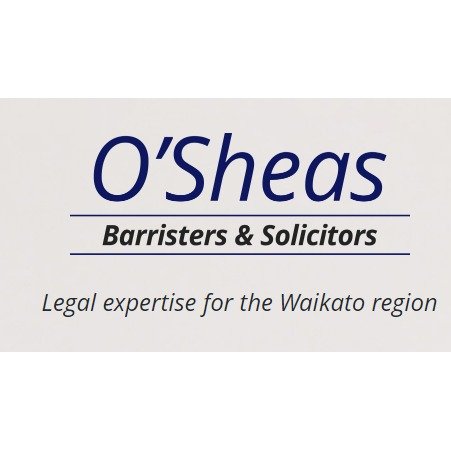Best Constitutional Law Lawyers in New Zealand
Share your needs with us, get contacted by law firms.
Free. Takes 2 min.
Or refine your search by selecting a city:
List of the best lawyers in New Zealand
About Constitutional Law in New Zealand
Constitutional Law in New Zealand is not codified in a single document like many other countries' constitutions. Instead, it consists of a collection of legal documents, statutes, and other common law elements that collectively define the system of governance. Key documents include the Treaty of Waitangi, the New Zealand Bill of Rights Act 1990, the Constitution Act 1986, and other statutes. The principles of constitutional law ensure the separation of powers among the branches of government, the protection of fundamental rights and freedoms, and the accountability of the government to the public.
Why You May Need a Lawyer
If you are dealing with issues related to the interpretation or application of constitutional principles, engaging a lawyer experienced in constitutional law may be necessary. Common situations include protecting or challenging civil liberties and human rights, addressing issues of public law pertaining to governmental powers, seeking judicial review of government decisions or policies, and understanding the interplay between domestic law and international obligations. A constitutional lawyer can provide vital legal analysis and representation in matters where governmental actions impact individual rights or community interests.
Local Laws Overview
New Zealand's constitutional framework, though unwritten, is significantly influenced by both parliamentary sovereignty and the rule of law. This involves several pieces of legislation and conventions, including:
- The Treaty of Waitangi, which is considered New Zealand's foundational document, emphasizing bicultural governance.
- The Constitution Act 1986, which outlines the roles and powers of the different branches of government.
- The New Zealand Bill of Rights Act 1990, which protects civil and political rights.
- The Electoral Act 1993, governing the electoral system.
- Common law principles and judicial decisions that have helped interpret and shape these frameworks.
Frequently Asked Questions
What is the Treaty of Waitangi?
The Treaty of Waitangi, signed in 1840, is an agreement between the British Crown and Maori chiefs that affirms Maori rights and outlines the principles of partnership, participation, and protection.
How does the New Zealand Bill of Rights Act 1990 protect citizens?
This Act safeguards fundamental civil and political rights, including freedom of expression, the right to justice, and rights against discrimination. It applies to governmental bodies in their decision-making processes.
What happens when there is a conflict between statutes and the Treaty of Waitangi?
Courts may interpret statutes in a manner that is consistent with Treaty principles, promoting a balanced approach between legal obligations and traditional Maori rights.
Can the New Zealand Parliament override constitutional principles?
Parliamentary sovereignty means Parliament can enact laws contrary to existing constitutional conventions. However, this is restrained by the principles of the rule of law and political accountability.
What role do courts play in constitutional law?
Courts interpret legislation, review government actions and policies, and ensure compliance with constitutional principles and rights protections.
How are human rights monitored in New Zealand?
Agencies like the Human Rights Commission and the Ombudsman provide oversight and address violations of rights both under domestic and international law frameworks.
What is judicial review?
Judicial review is a process where courts assess the legality of decisions or actions made by public bodies, ensuring they adhere to lawful processes and respects legal rights.
Is there an official New Zealand constitutional document?
No, New Zealand's constitutional law consists of several statutes, charters, conventions, and legal precedents rather than a singular codified document.
How can Maori rights be protected under constitutional law?
Certain statutes and the principles set out in the Treaty of Waitangi protect Maori rights. There are legal mechanisms for addressing breaches, including the Waitangi Tribunal.
What are the principles of liberty and equality in New Zealand?
They are upheld through various legislative acts, common law, and international agreements, ensuring non-discrimination and protection against arbitrary treatment by the state.
Additional Resources
Individuals seeking more information or assistance can explore resources from the New Zealand Law Society, Human Rights Commission, Office of the Ombudsman, and the Waitangi Tribunal. These organizations provide guidance and support in navigating constitutional and human rights issues.
Next Steps
If you require legal assistance in constitutional law, consider consulting a lawyer specializing in this area. You can start by contacting the New Zealand Law Society for a list of qualified practitioners. Additionally, researching your specific issue with the help of legal resources or contacting relevant governmental bodies may further clarify your situation. Always ensure you have up-to-date information pertinent to the latest legal developments.
Lawzana helps you find the best lawyers and law firms in New Zealand through a curated and pre-screened list of qualified legal professionals. Our platform offers rankings and detailed profiles of attorneys and law firms, allowing you to compare based on practice areas, including Constitutional Law, experience, and client feedback.
Each profile includes a description of the firm's areas of practice, client reviews, team members and partners, year of establishment, spoken languages, office locations, contact information, social media presence, and any published articles or resources. Most firms on our platform speak English and are experienced in both local and international legal matters.
Get a quote from top-rated law firms in New Zealand — quickly, securely, and without unnecessary hassle.
Disclaimer:
The information provided on this page is for general informational purposes only and does not constitute legal advice. While we strive to ensure the accuracy and relevance of the content, legal information may change over time, and interpretations of the law can vary. You should always consult with a qualified legal professional for advice specific to your situation.
We disclaim all liability for actions taken or not taken based on the content of this page. If you believe any information is incorrect or outdated, please contact us, and we will review and update it where appropriate.
Browse constitutional law law firms by city in New Zealand
Refine your search by selecting a city.












